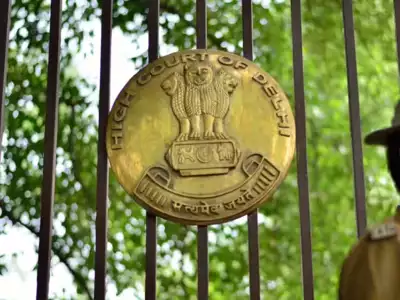
New Delhi: The Delhi High Court bench of Chief Justice Manmohan and Justice Manmeet PS Arora while hearing a matter concerning the state of the Delhi government-run hospitals in the national capital directed the authorities to ensure that decisions taken by the director of All India Institute of Medical Sciences (AIIMS), with the aim to improve critical care in state-run hospitals in the national capital, were implemented. The bench refused to entertain the issue related to the differences between the Delhi Health Minister and Delhi Health Secretary. When a senior counsel for the Delhi government raised concerns with respect to the Delhi government’s health secretary, alleging that he refused to meet the state Health Minister Saurabh Bhardwaj, the court asked him to keep the issue on the “back burner”.
In a document filed in the matter, Bhardwaj said the health secretary did not participate in meetings called by him to discuss the implementation of an expert committee’s recommendations and further alleged that earlier affidavits by the department in the matter were “full of misleading information”. “You may have some concerns (and) we will take it up. Just put it on the back burner at this moment. Let us stay focused on one thing.. Let us take care of that,” the bench said. The court underscored that critical care in hospitals was the first priority and decisions of the AIIMS director had to be implemented. The Delhi government meanwhile clarified the state’s approach was not that of an “obstructionist” but complying with the decisions of the AIIMS director.
On September 2, the high court had observed that all was “not well” in the Delhi government’s health department, which was witnessing a “bitter” fight among authorities. The high court, therefore, directed the AIIMS director to take over the responsibility of implementing the recommendations of a six-member expert committee under renowned physician Dr S K Sarin. The committee had reportedly pointed out deficiencies in the health system, including vacant posts, shortage of critical faculty members, infrastructure, medical or surgical consumables, emergency operation theatres and trauma services besides the referral system.
The AIIMS director informed that on October 4 a meeting with several senior officials, including the chief secretary, was convened to discuss the implementation of the Dr Sarin Committee’s recommendations. Important issues such as validation of correct data, timelines for various action points, training of staff, exchange of information between Delhi government hospitals and AIIMS, IT infrastructure as well as budget were discussed. The Delhi government’s health department informed the bench that appointment letters had been issued to 18 doctors selected by UPSC and a recruitment notice has been issued recently for filling up over 200 vacancies of specialists and other posts on a contractual basis. It also informed that there was a consensus among the authorities on setting up timelines ranging from 3 to 10 weeks for improving the critical-care ecosystem by hiring specialists, paramedics, nurses as well as approving other services.

